Question And Answer
Publications
Articles, publications, books, tools and multimedia features from the U.S. Institute of Peace provide the latest news, analysis, research findings, practitioner guides and reports, all related to the conflict zones and issues that are at the center of the Institute’s work to prevent and reduce violent conflict.
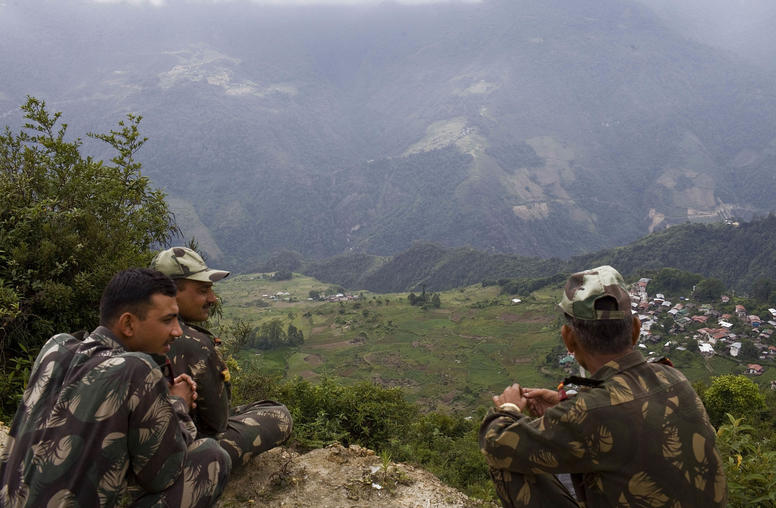
Why We Should All Worry About the China-India Border Dispute
The December 2022 clash between Chinese and Indian troops along the two countries’ 2,100-mile-long contested border — known as the Line of Actual Control (LAC) — highlights a worrying “one step forward, two steps back” trend. This brawl was the worst since 2020, when fighting in the Galwan Valley took the lives of 20 Indian and at least four Chinese soldiers. Although these clashes are often followed by dialogue and other steps to reduce tensions, both sides have increasingly militarized their border policies and shown no indication of backing down. And the situation on the border remains tense, as Beijing and New Delhi are hardening their positions on either side of the LAC, with the potential for escalation between the two nuclear-armed powers.
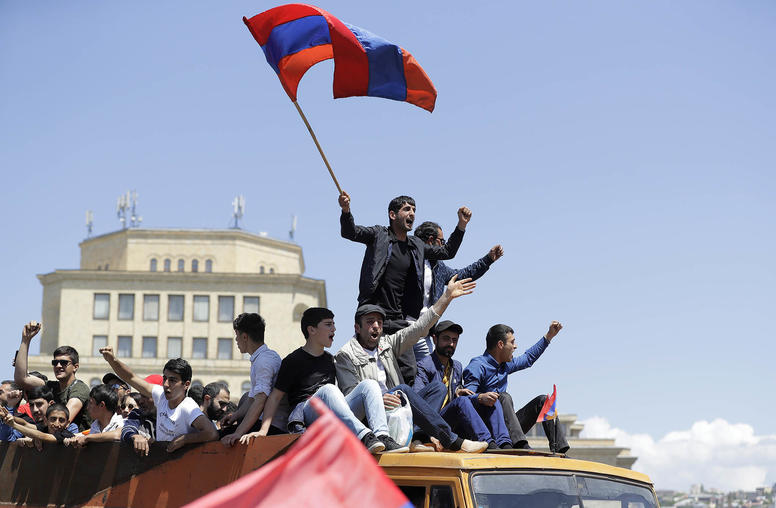
Overcoming the Challenges of Transitional Mobilization
Nonviolent action can be a powerful way to bring about peaceful transitions from autocratic rule to democracy. But even when initially successful, movement leaders often face significant challenges, from frustrations that grievances are not addressed quickly enough to counterrevolutions aimed at restoring the authoritarian status quo. This report examines two recent transitions—the 2011 Jasmine Revolution in Tunisia and Armenia’s 2018 Velvet Revolution—and presents recommendations for improving the likelihood that change initiated through nonviolent action leads to robust and lasting democracy.
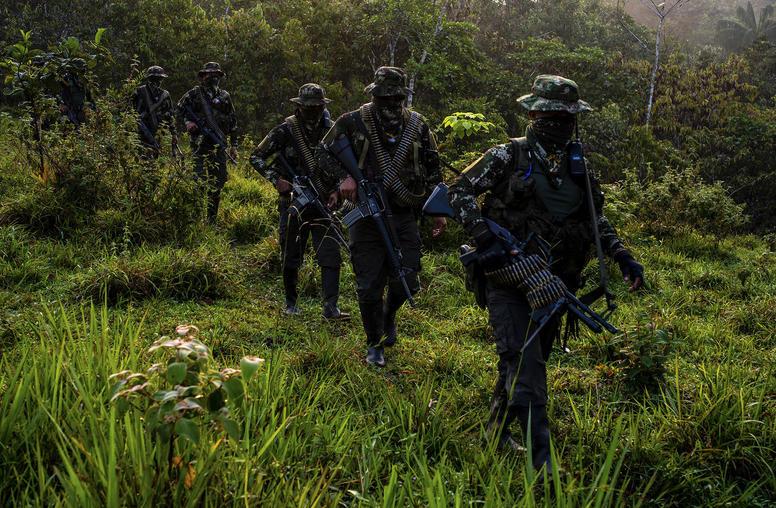
Colombian Civic Leader Offers a Grassroots Strategy for Peace
Nine months into new efforts by Colombia’s administration to achieve “total peace” with remaining armed groups following decades of civil war, that process should make room for the nation’s thousands of grassroots and community organizations to strengthen peace locally when the fighting stops, says a prominent civic leader from one of the country’s most violent regions. Stabilizing Colombia, where migration toward the United States and other countries soared last year, will require steady support from U.S. and international partners, said Maria Eugenia Mosquera Riascos, who helps lead a Colombian network of 140 civic and community organizations working to end violence.

Una lideresa social colombiana propone una estrategia para la paz con base en las comunidades
Tras nueve meses después del inicio de los nuevos esfuerzos del gobierno colombiano para alcanzar la "Paz Total" con los grupos armados que aún continúan activos luego de décadas de conflicto armado, este proceso debería buscar un espacio para que las miles de organizaciones comunitarias y de base del país fortalezcan la paz a nivel local cuando cesen los combates, dice una destacada líderesa social de una de las regiones más violentas del país. La estabilización de Colombia, desde donde la migración hacia Estados Unidos y otros países se disparó el año pasado, requerirá un apoyo constante de Estados Unidos y de sus socios internacionales, dijo María Eugenia Mosquera Riascos, quien ayuda a dirigir una red colombiana de 140 organizaciones cívicas y comunitarias que trabajan para poner fin a la violencia.
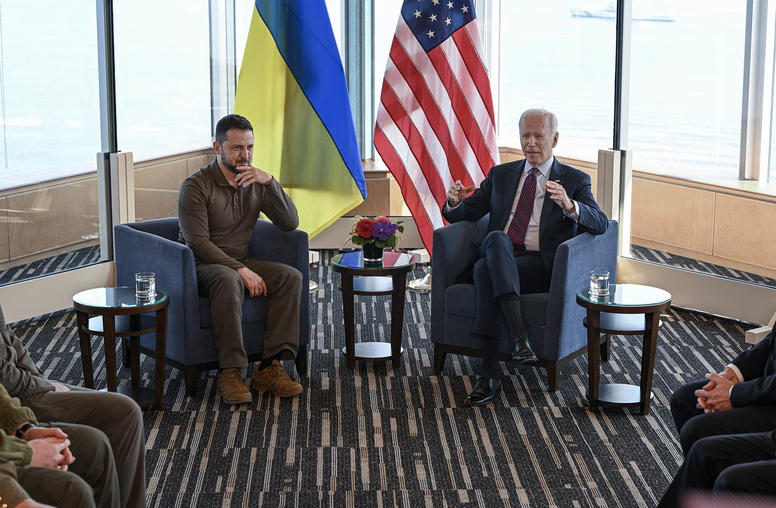
The United States Should Lead the Push for Peace in Ukraine
Recent weeks have witnessed several calls for peace in Ukraine. Ukrainian President Zelenskyy just wrapped up appearances at the G7 Summit and the Arab League, urging support for his country’s peace plan. China recently followed up the release of its February 2023 peace plan by sending its top diplomat, Wang Yi, on a European tour and dispatched peace envoy Li Hiu last week to Ukraine, Poland, Germany, France and Russia. At no time since Russia’s invasion of Ukraine, has there been so much momentum toward a peaceful resolution to the conflict in Ukraine. The United States should seize this opportunity to play a leading role.
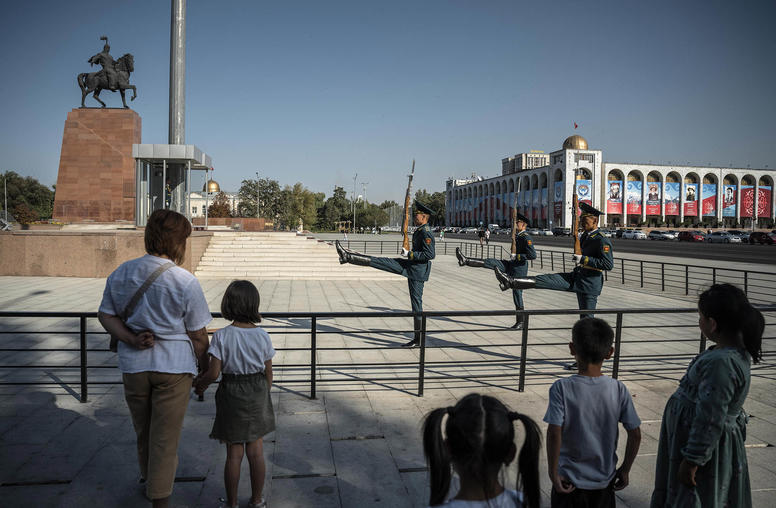
China Looks to Fill a Void in Central Asia
As the Group of Seven met at the end of last week in Hiroshima, Japan, China organized a summit with Kazakhstan, Kyrgyzstan, Tajikistan, Turkmenistan and Uzbekistan, marking a new chapter in Beijing’s engagement with the region. Central Asian states are looking for a new partner to help ensure their own security against domestic rebellions, as Russia’s war in Ukraine has limited Moscow’s ability to fulfill a longstanding role as a guarantor of domestic stability in the region. While most of the summit’s public discussion focused on economic and trade issues, China noted that it would help Central Asia enhance it’s law enforcement and security capabilities, which aligns with Beijing’s intensifying campaign for “global security.”
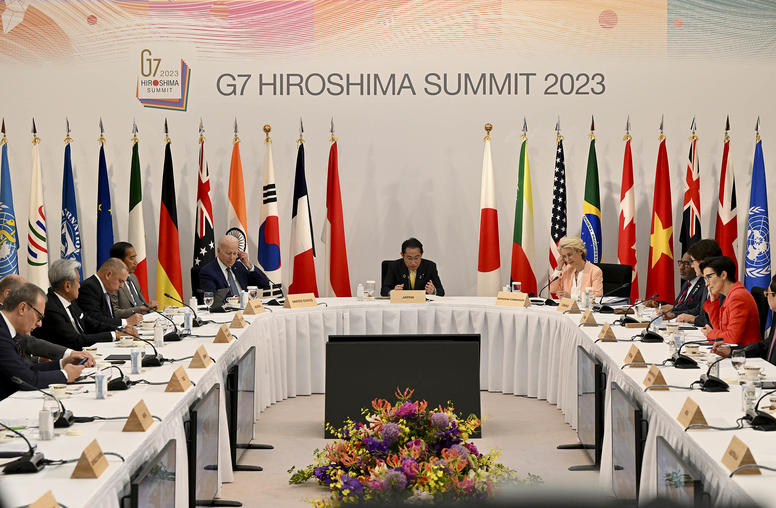
At the G7 Summit, Leaders Talk Tough on China but Moderate Tone
The major headline from this year’s G7 summit in Hiroshima was the appearance of Ukrainian President Volodymyr Zelenskyy and his push to end Russia’s war on his country. But another G7 concern, China, also featured prominently at the summit. While this year’s G7 leaders’ communique featured some more moderate language on China than last year’s, it also focused heavily on economic coercion, condemning a “disturbing rise” of the “weaponization of economic vulnerabilities” — a not too subtle jab at China’s economic statecraft. Still, even as U.S.-China relations remain tense, this year’s discussion of constructive engagement represents a shift more aligned with European and Japanese stances on how to deal with the challenges posed by China.
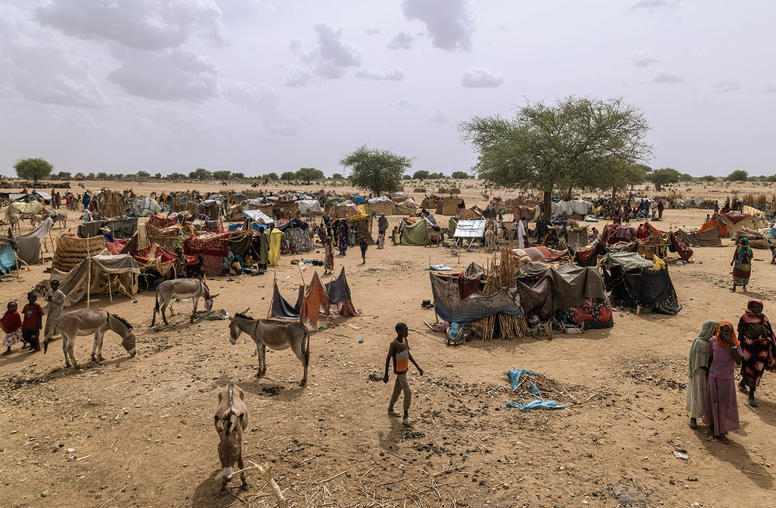
Sudan’s Crisis Offers New Lessons for Building Peace in the Sahel
Sudan’s five-week war has killed or wounded over 5,000 people, uprooted a million more — and reignited understandable frustrations over how U.S. and international policies can better prevent or respond to such upheavals. Amid heated policy debates, we should step back briefly to pinpoint lessons from this crisis that can improve our responses in Sudan and across the Sahel’s web of coups, insurgencies and extremism. Indeed, that task is urgent — both to address the complex evolutions in the region’s crises and to build support for smarter, steadier engagement, rather than a self-defeating retreat from the Sahel by global partners seeking democracy and stability.

Why the U.S. Wants to Step Up Engagement in the Indian Ocean
Earlier this month, Deputy Assistant Secretary of State Afreen Akhter led a U.S. delegation to the sixth Indian Ocean Conference. Since its inception in 2016, the Indian Ocean Conference has become a prominent gathering for regional stakeholders to discuss collective issues — from trade and economic cooperation to security considerations. This year’s proceedings in Dhaka, Bangladesh, featured representatives from 25 countries amid a backdrop of geopolitical concerns that have thrust the Indian Ocean into a prominent role in global affairs.
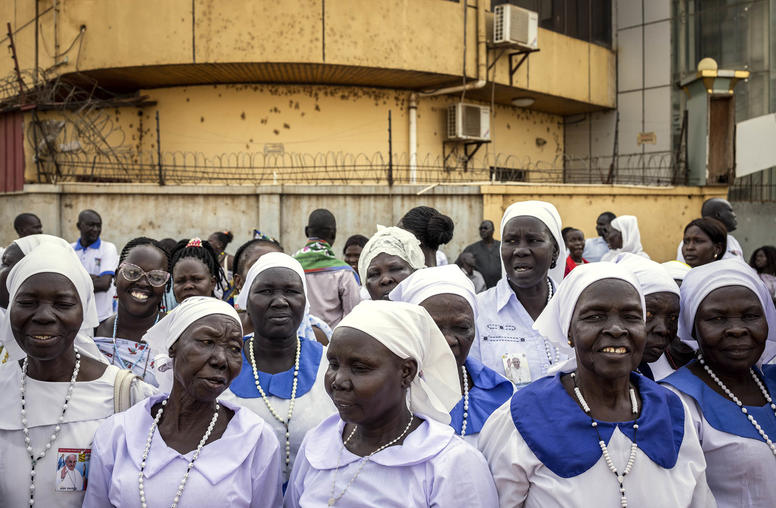
The U.S. Strategy for International Religious Engagement: 10 Years On
In 2013, the United States adopted its first ever “National Strategy on Integrating Religious Leader and Faith Community Engagement into U.S. Foreign Policy.” This White House strategy acknowledged the significant contributions of religious leaders and faith communities to human rights, global health and development, and conflict mitigation; and provided an interagency blueprint for integrating more robust engagement with religious actors across a broad range of foreign policy and national security issues. A decade later religious engagement remains a vital but underdeveloped capacity in U.S. foreign policy, and the strategy’s 10th anniversary offers a natural opportunity to revitalize strategic thinking and spur new action on this agenda.